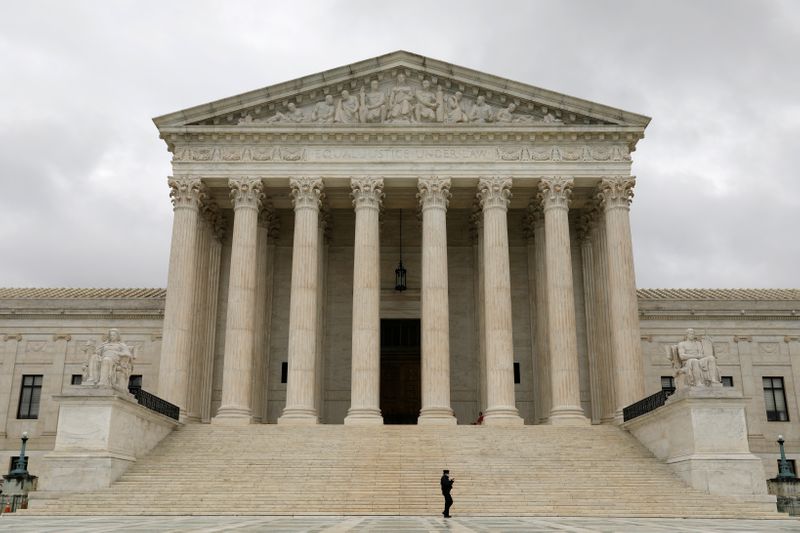By Jan Wolfe
WASHINGTON (Reuters) - President Donald Trump on Tuesday asked the U.S. Supreme Court to freeze a lower court's ruling allowing a prosecutor in New York City to enforce a subpoena seeking Trump's tax returns and other financial records for a criminal probe into him and his businesses.
Trump's personal lawyers sought to put on hold a federal judge's decision that rejected the Republican president's claims that the subpoena was overly broad and amounted to political harassment by Manhattan District Attorney Cyrus Vance, a Democrat.
The Supreme Court already has ruled once in the dispute, rejecting in July Trump's argument that he was immune from criminal probes as a sitting president.
Trump's team said a temporary stay would allow him "a fair chance to develop" his arguments against the subpoena.
A spokesman for Vance declined to comment.
Vance's probe, which began more than two years ago, had focused on hush money payments that the president's former lawyer and fixer Michael Cohen paid before the 2016 election to two women - an adult-film star and a former Playboy model - who said they had sexual encounters with Trump.
The district attorney has suggested in recent court filings that the probe is now broader and could focus on potential bank, tax and insurance fraud, as well as falsification of business records.
The Supreme Court in its July ruling against Trump said he could raise other objections to the grand jury subpoena arising from Vance's probe to his longtime accounting firm, Mazars USA, for his corporate and personal tax returns from 2011 to 2018.
U.S. District Judge Victor Marrero in Manhattan upheld the subpoena on Aug. 20, saying throwing it out would effectively give the president immunity from Vance's criminal probe to which the Supreme Court found he was not entitled. The New York-based 2nd U.S. Circuit Court of Appeals upheld Marrero's decision last week.
The New York Times reported on Sept. 28 that Trump had paid $750 in federal income taxes in both 2016 and 2017, and no income taxes in 10 of the prior 15 years, reflecting chronic business losses that he used to avoid paying taxes. Trump has disputed the Times report.

Trump, seeking re-election on Nov. 3, has refused to make his tax returns public, unlike his six immediate predecessors occupying the White House.